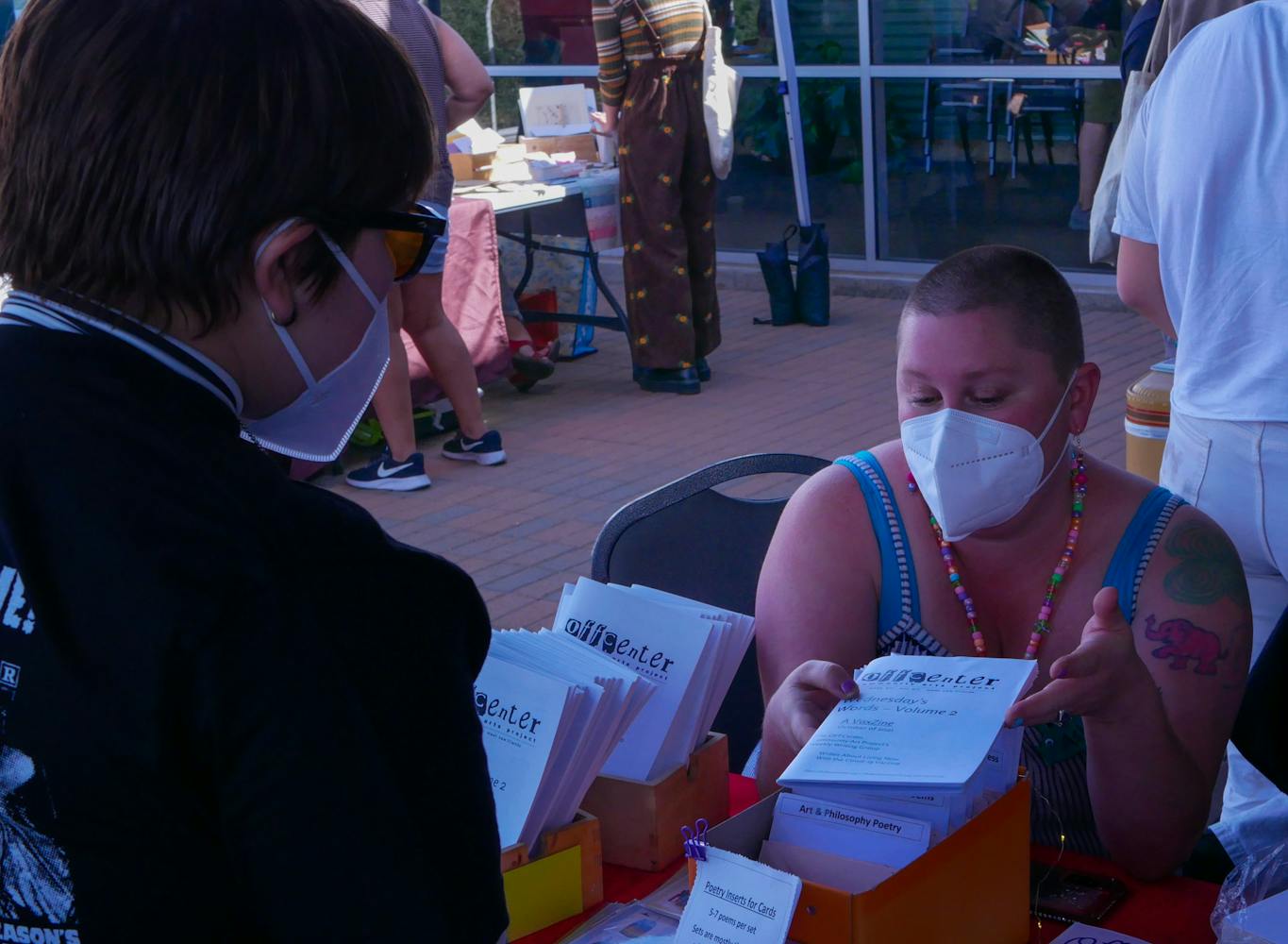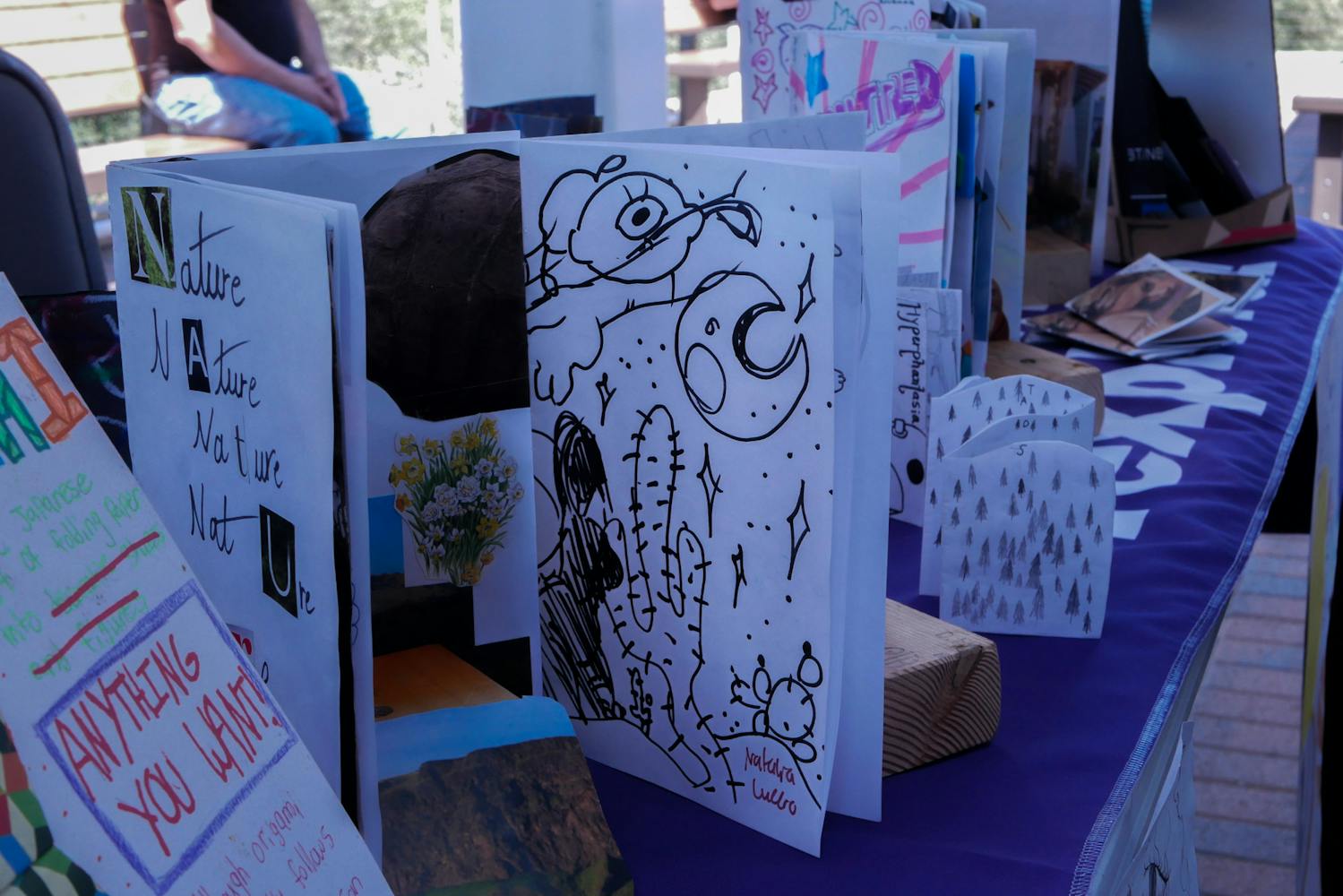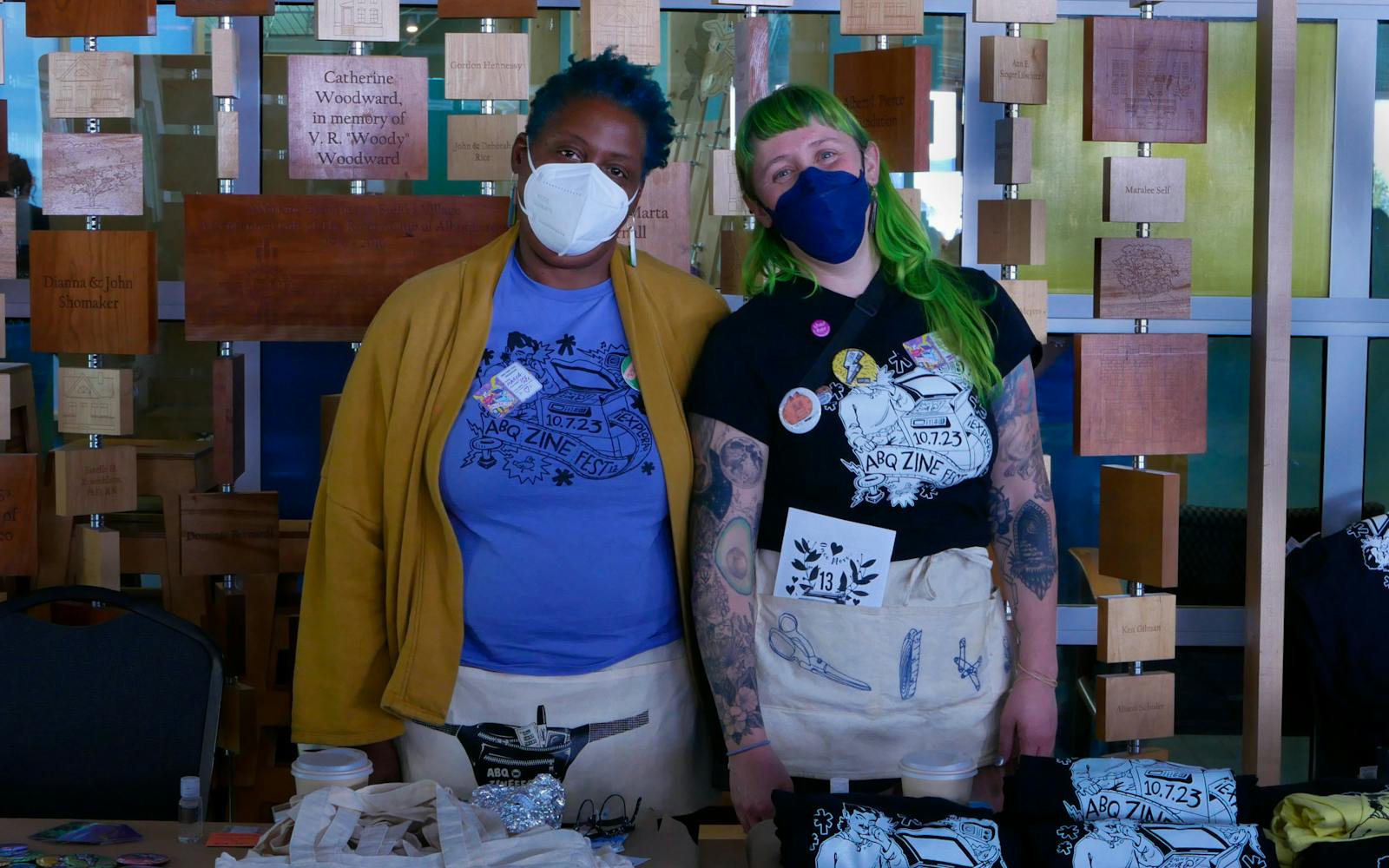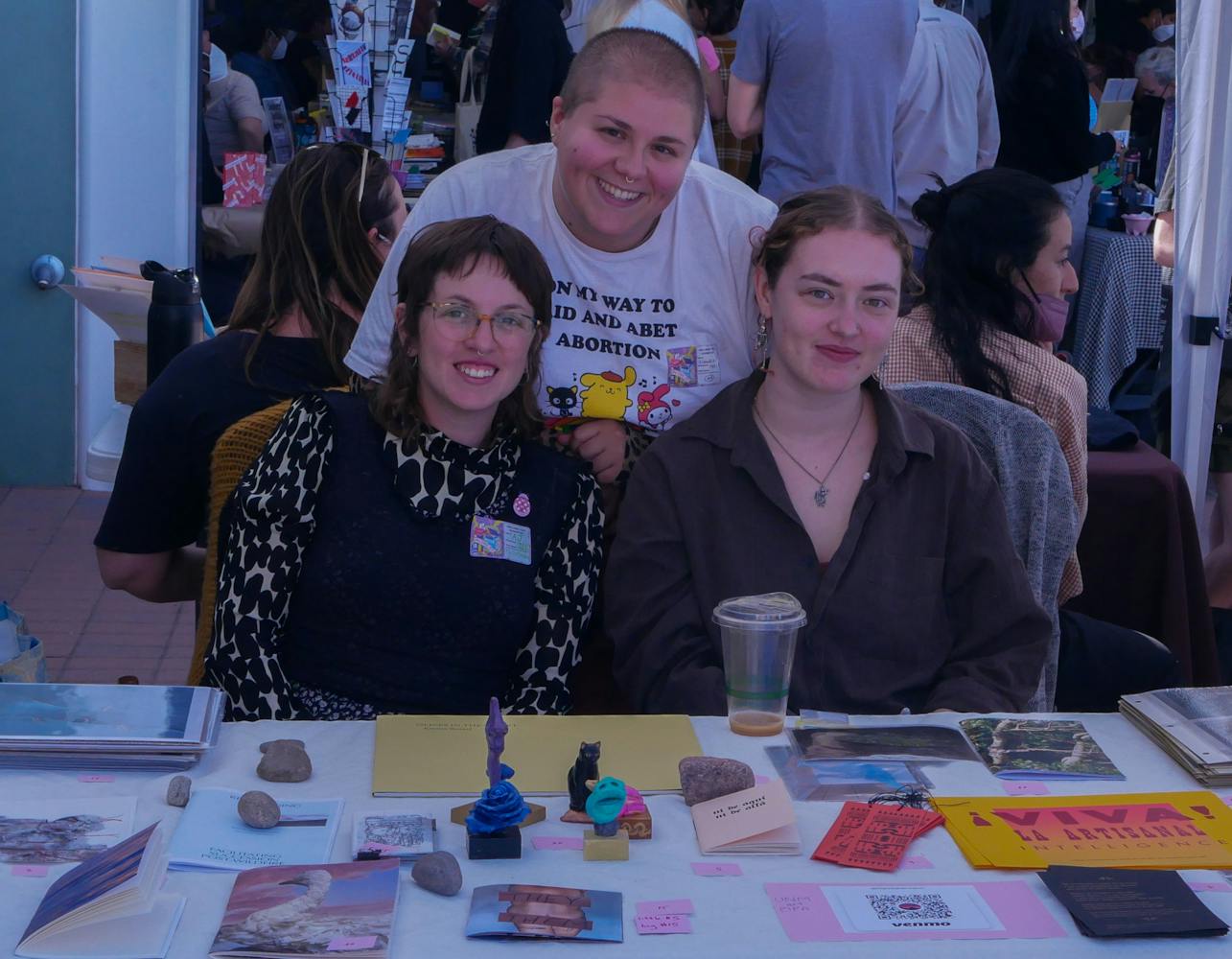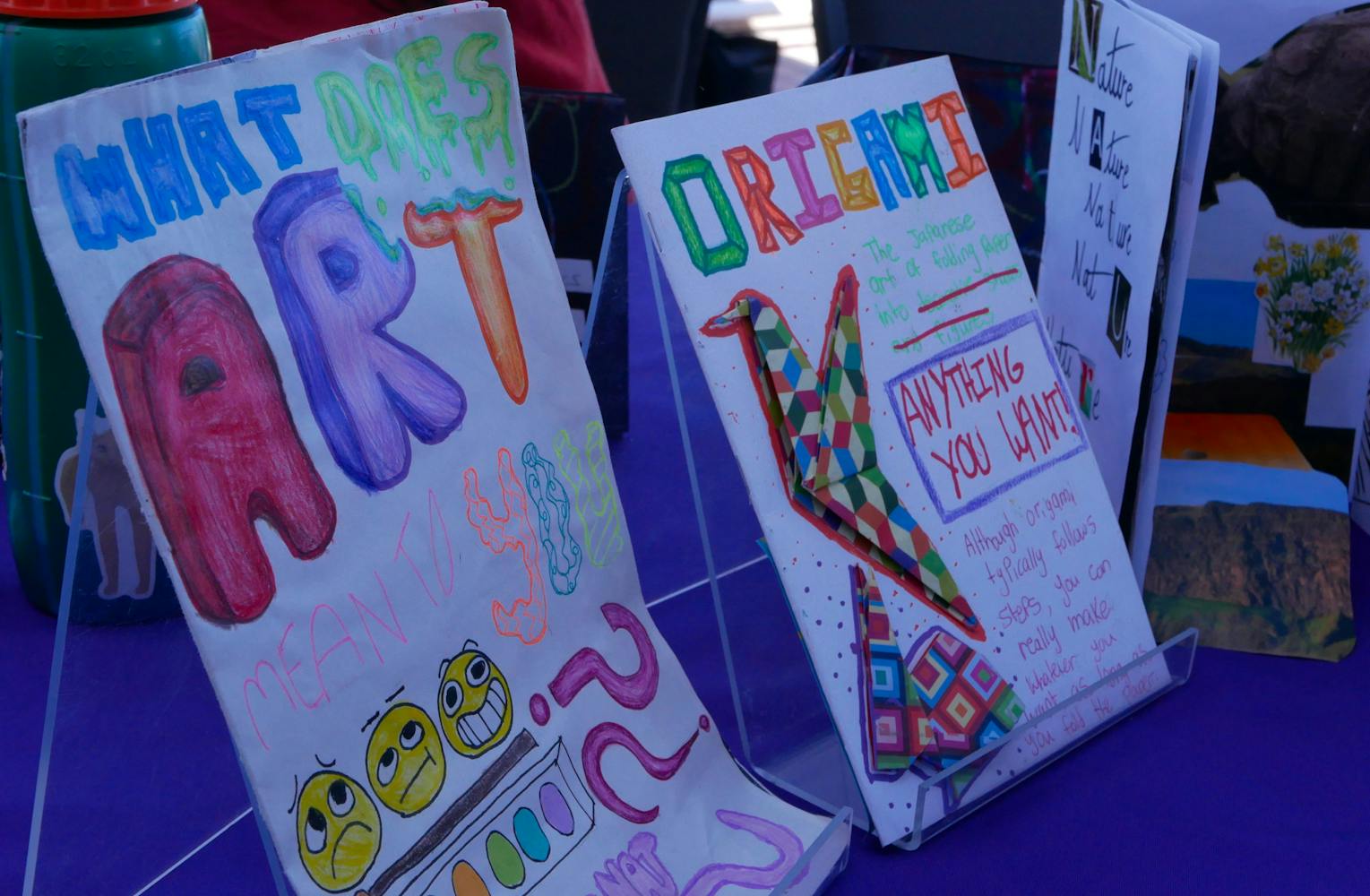Zines are small, self-published booklets that contain artwork, poetry, news and more.
Zines are frequently distributed on a small scale because of the do-it-yourself nature of creation, Marya Errin Jones said – ABQ Zine Fest founder. Mass market publication can be a difficult process, so for many creators, self-publication is the best way to make their voices heard.
Albuquerque once had a prominent DIY scene, Jones said. Zine Fest was started as a revival.
“Albuquerque has a history of writing, publishing and anarchy. With the change of our world and the leaning toward capitalism, a lot of people have left Albuquerque,” Jones said.
Self-publication leaves space for freedom in ways that mass-market publication does not, Jones said. Because of the independent nature of zines, topics can be more freely chosen and communicated without as much worry about censorship, miscommunication and typos.
Zine Fest always takes place on the first Saturday of October, but the location changes year by year. The migratory space is just another part of the fluid culture of zine creation and distribution. “You know when it’s going to pop up, but maybe you don’t know where,” Jones said.
UNM Graduate students Natalia Tuscano and Gustavo Garcia are proud “zinesters” who run Tierra y Libertad Zine Press. Their press is a collective run by graduate students across universities, focused on creating artwork with friends as well as sharing their experiences with a wider audience.
“As graduate students, we understand the politics of publishing and the politics of knowledge production and dissemination,” Toscano said. “Zines are a fun, creative and popular (way to) share information that isn't costly, privatized and can be accessible to a wider audience than a traditional book (might) be.”
For Tierra y Libertad Press, communication about Chicanx identity, cultural identity and politics is central. They also share stories about displacement, immigration communities and political movements in Mexico. They aim to give a platform to people who may not have access to the privileges associated with mass-market publication.
“Oftentimes, in traditional publishing, our experiences and our voices aren't at the center, so zine-making gives us that space to do so and to collaborate and to work with others,” Garcia said.
Zines are important to people across cultures for a variety of reasons. Primarily, people create zines as a way to communicate their lived experiences, or the lived experiences of others in a way that is often limited by traditional publishing, Garcia said..
“Zine-making gives us an opportunity to write about ourselves in our communities in a way where we have control of our power to be able to describe and talk about the complexities of our experience,” Garcia said.
Get content from The Daily Lobo delivered to your inbox
Detroit Kallunki is a senior reporter with the Daily Lobo. They can be reached at culture@dailylobo.com or on Twitter @DailyLobo.
Detroit Kallunki is a senior reporter with the Daily Lobo.


